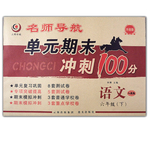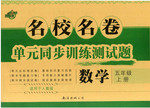
阅读理解
According to the stereotype (常规), blue - collar workers are men with little formal education who use their muscles instead of their brains to earn a living. They come home from work, open a can of beer, sit down and start complaining about work, money and demands made by small groups.
The stereotype, which has wide acceptance, is unfair. Blue - collar workers have to use both mind and body, and often their jobs require a good deal of knowledge and skill. They usually go straight to work after high school. If they want more education, they get it by themselves, not through support of families or scholarships.
If blue - collar workers complain, there are some good reasons. Bosses tell them that they are laborers with the highest pay in history, but they look around and see that the gaps between the rich and the poor is wider than ever. They feel that the government has paid little attention to them and consider themselves forgotten men.
(1) The main idea of the passage is that ______.
[ ]
A.blue - collar workers are not treated fairly
B.blue - collar workers should have formal education
C.blue - collar workers complain too much
D.blue - collar workers have to get some support of families or scholarship
(2) According to the writer, a blue - collar worker ______.
[ ]
A.works just with his muscles
B.uses both his mind and body
C.works mainly with his brain
D.works with either muscles or brain.
(3) From the passage, we can conclude that ______.
[ ]
A.the stereotype tells the difference between the rich and the poor
B.people in general think that the stereotype tells the truth
C.people in general don't agree with the stereotype
D.“all in the Family” is different from the stereotype in all fields
(4) If blue - collar workers complain, their complaints are ______.
[ ]
A.only about money
B.sometimes reasonable
C.unfair
D.accepted by bosses
(5) Blue - collar workers consider themselves forgotten men because ______.
[ ]
A.they could not remember things well
B.they forget things easily
C.bosses refuse to give them high pay
D.the government doesn't care much for them
 名师导航单元期末冲刺100分系列答案
名师导航单元期末冲刺100分系列答案 名校名卷单元同步训练测试题系列答案
名校名卷单元同步训练测试题系列答案科目:高中英语 来源:走向清华北大同步导读·高一英语(上) 题型:050
阅读理解
Some countries have a large number of earthquakes. Japan is one of them. Others do not have many; for example, there are few earthquakes in Britain. There is often a great noise during an earthquake. The ground shakes and houses fall down. Railway lines are broken. Trains run off the lines. Sometimes thousands of people are killed in different ways. Abut 60,000 were killed in 1783 in South Italy. A terrible earthquake in 1883 killed 35,000 people in Indonesia.
Another terrible earthquake happened in India in 1896. The ground suddenly moved 0.45m to one side. Then it moved back again. It moved like this 200 times a minute. Nearly all the buildings and trees fell down when that was happening.
1.________ has few earthquakes.
[ ]
2.It isn’t true that ________ during an earthquake.
[ ]
A.the ground shakes
B.materials become hot
C.some people die
D.a great noise can be heard
3.There were many fires after the Tokyo earthquake because ________ .
[ ]
A.people were using fires
B.the earthquake shook the fires
C.the houses were made of wood
D.A, B and C
4.How did the ground move when the earthquake of 1896 happened in India?
[ ]
A.It moved to one side and than back 200 times a minute.
B.It moved 0.45m to one side and then to the other side in a minute.
C.It moved 0.45m a minute
D.It moved 20 times in a minute
6.Which of the following is NOT true?
[ ]
A.Trains run off the lines because railway lines are broken during an earthquake.
B.The earthquake of 1923hit Tokyo late in the day .
C.People threw hot materials onto different parts of the houses.
D.There were few buildings in the area after the earthquake of 1896 in India.
查看答案和解析>>
科目:高中英语 来源:单元双测同步达标活页试卷 高二英语下 题型:050
阅读理解
When it comes to language learning, you're the boss. You may say, “Isn't it the teacher's job to tell me what to learn?” Actually, effective language learners don't rely on the teacher to spoon-feed them. They are go-getters. They seek out chances to use their new language and to learn new vocabulary. They know that language proficiency won't just drop out of the sky, and that learning comes by doing. In short, they're active learners.
“I know, I know,” you admit. “I should practise English more.” Actually, instead of looking for chances to practise English, think of ways to use English in daily life. That is, put yourself in situations where you'll be forced to communicate in English, and you'll see more progress over time. You need large help of English input to feed your language development. When you use the language, it will become your own.
1.According to the article, in language learning, one should be ________.
[ ]
2.The underlined word “proficiency” probably means a high standard of ________.
[ ]
3.Which of the following doesn't accord with(符合) the point of the article?
[ ]
A.To see English films.
B.To do your homework more often.
C.To listen to English songs.
D.To speak English with your partners.
查看答案和解析>>
科目:高中英语 来源: 题型:053
阅读理解
The kids at Shute Country Primary School in Devon are surprisingly quiet when it's time to go home in the afternoon. Instead of the usual shouting and running you can hear them asking each other,“Are the lights all off?”“Shall we check the taps in case they are dripping?”“How many paper towels did we use today?”
But it's not unusual here. The kids have declared a war on waste.
“We've never made the children do anything.”explained Liz Templar, the school's head teacher.“They came up with all the ideas themselves. They're doing this because they want to.”
If you take a look around the school you won't see anything thrown away unnecessarily. Everything is collected and reused, or sent to be recycled.
Shute School started its green revolution two years ago. They looked carefully at every part of school life--from the teaching to the cleaning. They looked at the stationery(文具) that was used--especially photocopying, the way cleaning was carried out, and how food was used--and wasted!
Even parents were looked at: how many children came in each car? Did they use unleaded petrol? Could they bring more children in fewer cars?
High on the list was the waste of paper. Next came unfriendly cleaning products. Paper towels were replaced with recycled paper, but the hardest thing for the kids was when they found out how much rubbish was created by the chocolate, crisps and other snacks(小吃) eaten at lunch time. Of their own accord(自愿地), the children gave them up. Now they bring apples and home-made snacks.
The school has its own garden where they grow vegetables and flowers so that they can learn about the environment. They also use this area for their recycling store--large containers to collect aluminium, bottles, paper and fabric(织物).
Even the school's play area is made from recycled things.
Since the children started, the school's heating and lighting bills have fallen obviously and the number of rubbish bags has gone down from seven a week to two or three.
Everywhere in Shute School there are bright posters asking everyone to take their rubbish home, to save energy and paper and to keep the green flag flying.
1.Which of the following is the major information we get from the passage?
[ ]
A.The pupils at Shute School are fighting against air pollution.
B.The pupils at Shute School are learning to save things.
C.The pupils at Shute School have declared a war on waste.
D.The pupils at Shute School have found a way to recycle waste things.
2.Children at Shute Country Primary School bring apples and home-made snacks to school in order to _____.
A.create less rubbish
B.save money
C.obey the school's rules
D.keep their promise
3.We can infer from the text that“green revolution” means _____.
[ ]
A.beautifying schoolyard
B.activity against waste
C.planting green plants
D.throwing away waste
4.What do the children think creates the most waste?
[ ]
A.Paper towels.
B.Cleaning products.
C.Snacks.
D.Paper.
5.We learn from the text that the children's behavior _____.
[ ]
A.has brought arguments
B.has saved the school's cost
C.worried their parents
D.was forced by their head teacher
查看答案和解析>>
科目:高中英语 来源:英语教研室 题型:050
阅读理解
The kids at Shute Country Primary School in Devon are surprisingly quiet when it's time to go home in the afternoon. Instead of the usual shouting and running you can hear them asking each other,“Are the lights all off?”“Shall we check the taps in case they are dripping?”“How many paper towels did we use today?”
But it's not unusual here. The kids have declared a war on waste.
“We've never made the children do anything.”explained Liz Templar, the school's head teacher.“They came up with all the ideas themselves. They're doing this because they want to.”
If you take a look around the school you won't see anything thrown away unnecessarily. Everything is collected and reused, or sent to be recycled.
Shute School started its green revolution two years ago. They looked carefully at every part of school life--from the teaching to the cleaning. They looked at the stationery(文具) that was used--especially photocopying, the way cleaning was carried out, and how food was used--and wasted!
Even parents were looked at: how many children came in each car? Did they use unleaded petrol? Could they bring more children in fewer cars?
High on the list was the waste of paper. Next came unfriendly cleaning products. Paper towels were replaced with recycled paper, but the hardest thing for the kids was when they found out how much rubbish was created by the chocolate, crisps and other snacks(小吃) eaten at lunch time. Of their own accord(自愿地), the children gave them up. Now they bring apples and home-made snacks.
The school has its own garden where they grow vegetables and flowers so that they can learn about the environment. They also use this area for their recycling store--large containers to collect aluminium, bottles, paper and fabric(织物).
Even the school's play area is made from recycled things.
Since the children started, the school's heating and lighting bills have fallen obviously and the number of rubbish bags has gone down from seven a week to two or three.
Everywhere in Shute School there are bright posters asking everyone to take their rubbish home, to save energy and paper and to keep the green flag flying.
1.Which of the following is the major information we get from the passage?
[ ]
A.The pupils at Shute School are fighting against air pollution.
B.The pupils at Shute School are learning to save things.
C.The pupils at Shute School have declared a war on waste.
D.The pupils at Shute School have found a way to recycle waste things.
2.Children at Shute Country Primary School bring apples and home-made snacks to school in order to _____.
A.create less rubbish
B.save money
C.obey the school's rules
D.keep their promise
3.We can infer from the text that“green revolution” means _____.
[ ]
A.beautifying schoolyard
B.activity against waste
C.planting green plants
D.throwing away waste
4.What do the children think creates the most waste?
[ ]
A.Paper towels.
B.Cleaning products.
C.Snacks.
D.Paper.
5.We learn from the text that the children's behavior _____.
[ ]
A.has brought arguments
B.has saved the school's cost
C.worried their parents
D.was forced by their head teacher
查看答案和解析>>
科目:高中英语 来源:设计必修二英语北师版 北师版 题型:050
| |||||||||||||||||||||||||||||||||||||||||||||||||||||
查看答案和解析>>
湖北省互联网违法和不良信息举报平台 | 网上有害信息举报专区 | 电信诈骗举报专区 | 涉历史虚无主义有害信息举报专区 | 涉企侵权举报专区
违法和不良信息举报电话:027-86699610 举报邮箱:58377363@163.com